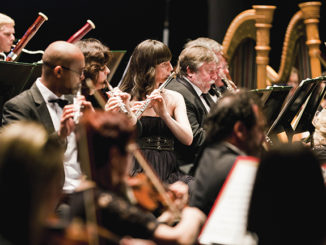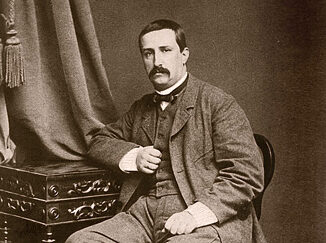
The last three days of March have a reputation for being stormy. Scottish folklore proposes that those three days were borrowed from April, so that March might extend his intemperate power.
The Spanish story about the three “borrowing days” is that a shepherd promised March a lamb if he would temper the winds to suit the shepherd’s flocks. But after the request was granted, the shepherd refused to deliver on his promise. In revenge, March borrowed three days from April, in which fiercer winds than ever raged to punish the deceiving shepherd: “March borrowed three days from April, and they were ill winds..The first was frost, the second was snow, the third was cauld as ever ‘t could blaw.”
Many Native Americans used the lunar phases to track the seasons. The Algonquin triibes called the March full moon, (March 20 this year) the “Full Worm Moon.” Colonial Americans who lived between Lake Superior and the Northeast also used the name “Full Worm Moon” because the ground is beginning to soften enough for earthworms to appear, inviting the return of robins and migrating birds.
March is named after Mars, the Roman god of war. The musical genre we call the march was probably developed through the centuries to help invigorate military campaigns interrupted by the long winters. The music’s strong, regular rhythm certainly helped.
In our day, marches can range in mood all the way from the moving Death March in Wagner’s “Gotterdammerung” to the brisk military marches of John Philip Sousa and the martial hymns of the late 19th century. We can readily find examples of the varied use of the march in Beethoven’s Eroica Symphony, in the Marche Militaire of Franz Schubert, the Marche Funabre of Chopin’s Sonata in b-flat, and Handel’s Death March in “Saul.”
THE MUSIC OF MARCH
The Vienna Boys Choir has been around for over five centuries. The famed choir is actually made up of four separate ensembles of boys from ten to 14 years of age. The four groups are of equal standing, and the groups’ tours, concerts in Vienna, and audio and video recording projects are shared among them. Roughly 11 weeks of the school year are devoted to touring. Each choir member sings about 80 concerts yearly. Many of the young men have brothers, fathers, uncles and grandfathers who have also been members of the choir.
Formally established at Vienna’s Imperial Chapel in 1498 by Holy Roman Emperor Maximilian I, it began as a medieval selection of six boys. Today’s Vienna Boys Choir is made up of singers from all over the world admitted by audition. The choir visiting the U.S. this year, conducted by Manolo Cagnin, includes boys from Austria, Cambodia, China, France, Germany, Iceland, Italy, Japan, Korea, New Zealand and the Philippines.
Each group is named after a noted Austrian composer – Bruckner, Haydn, Mozart and Schubert. The Vienna Boys Choir has sought to update its image, recording pop music and adopting an alternative uniform to their familiar sailor suit used since the 1920s.
The Choir’s U.S. tour includes a concert in Bowling Green. Circle 7:30 p.m. Tuesday, March 5, at SKyPAC, and look for them in the new film “Good Shepherds.”
THE GAITHER VOCAL BAND
Named after its founder and leader Bill Gaither, this vocal ensemble of a different variety sparks up the March music scene as they team up with Orchestra Kentucky and special guest Larnelle Harris. This favorite gospel ensemble had released 29 albums, at least 19 of which have charted. The group has been awarded two Grammys and 17 Dove Awards.
The line-up of the band has often changed through the years with artists leaving to work on solo careers. The Bill Gaither Vocal Band is the successor group to the Bill Gaither Trio. By the 1980s, Bill, along with his wife Gloria Gaither, became very successful songwriters. For example, their tune “He Touched Me” was covered by Elvis Presley, who won a Grammy for the album.
The Bill Gaither Vocal Band, including founder and bass Bill Gaither and featuring guest artist Larnelle Harris will appear in an Orchestra Kentucky Special Events concert at 7:30 p.m. Saturday, March 16, at SKyPAC.
SATCHMO
Louis Daniel Armstrong (Satchmo, Satch, Pops, Louie) was a famed African-American trumpeter, composer, vocalist, occasional actor and skilled scat-singer who probably enjoyed claiming he was born on the Fourth of July, 1900, although birth records show a different date, August 4, 1901.
By the end of his career in the 1960s, “Louie” Armstrong was widely regarded as a profound influence on pop music. He was one of the first truly African-American entertainers to cross over. It was his music, trumpet, gravelly voice, winning personality. The skin color became secondary.
At age 6, Armstrong attended a New Orleans-based school that accepted black children. He did odd jobs for the Karnoffskys, a family of Lithuanian Jews. While selling coal, he heard “spasm” bands, groups that played music on household objects. He heard the early sounds of jazz pouring out of dance halls and brothels.
The Karnoffskys took Armstrong in, treating him like family. He discovered that this family was also subject to discrimination by “other white folks” who felt they were better than Jews. “I was only seven years old, but I could easily see the treatment that the white people were handing the poor Jewish family whom I worked for.” Armstrong wore a Star of David pendant for the rest of his life.
Armstrong’s first public musical performance may have been at the side of the Karnoffsky family junk wagon. To distinguish them from other hawkers, he tried playing a tin horn to attract customers. Morris Karnoffsky gave young Louis an advance toward the purchase of a cornet from a pawn shop. That could have been how it all started for Satch.
Orchestra Kentucky, conducted by Music Director Jeff Reed with Byron Stripling, bring legendary Louis Armstring and the pulsating music of New Orleans to life at 7:30 p.m. Saturday, March 23, at SKyPAC. Check out the mellower side of the music of March.
-by Lee Stott
About the Author: Lee Stott is retired from WKU Public Radio, lives near Franklin with his daughter Cindy Wade’s family and has 30 grandchildren and one great-grandson.




